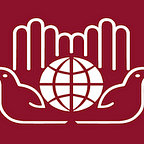Ruth Jebb, Humanitarian Nurse and IDHA Alumna, Awarded Florence Nightingale Medal for Exceptional Courage and Devotion
July 17, 2017, New York — In her everyday life in Brisbane, Australia, Ruth Jebb (IDHA 37 alumna) works as a Clinical Nurse Consultant at a large tertiary hospital, but when disaster strikes abroad she takes on the role of nurse and midwife as an emergency responder deployed with the Red Cross and the Australian Medical Assistance Team.
Throughout her myriad of deployments she has provided lifesaving care during earthquakes in New Zealand and Nepal, typhoons in the Philippines, conflict in South Sudan, cholera outbreaks in Chad, among other trying situations. More recently, she has focused on training local health care responders in community health provision, psychosocial support, and maternal, neonatal and child health care.
Twelve years after beginning her humanitarian health care career in northern Kenya, Ruth was awarded the prestigious Florence Nightingale Medal this past May. The award acknowledges five Australians who have shown “exceptional courage and devotion to the sick, wounded or disabled in conflict or disaster zones.”
She was selected by a commission of the International Committee of the Red Cross, the International Federation of the Red Cross and Red Crescent Societies and the International Council of Nurses.
Whether at home or in humanitarian situations abroad, Ruth remains committed to her responsibility to “support, mentor, teach and lead.” However, in humanitarian settings, the distinct lack of access to resources, intense workloads and contextual differences poses a more severe set of challenges.
“Back at home, I often take it for granted that we work in a protected environment, where people are able to access quality health care safely and efficiently. We have all the resources we need to provide care to those who need it. Often, when working in developing contexts and post-disaster environments, it can be heartbreaking hearing the stories of people travelling for days to reach health care facilities, or of those who never make it, often with ailments that require simple life-saving and life-changing interventions. It can be confronting not being able to provide the same standard of care that we are so accustomed to back home.”
Security issues further impede these efforts, often adding another layer of complexity.
“Although personal safety is a priority it can be incredibly frustrating to be limited by security incidents that are occurring either directly or indirectly, especially when it involves life and death situations amongst the community you are there to assist.”
In 2007, she was deployed on a nine-month mission to manage the ICRC’s Therapeutic Feeding Center in Gereida, Darfur. Home to close to 145,000 internally displaced persons, Gereida was “a challenging mission, not only as a result of the direct impact of looking after so many unwell, undernourished and often dying children, but also because of the ongoing security risks that were a reality of our day-to-day life.”
Ruth recalls one incident when her vehicle was hijacked at gunpoint. She escaped the situation unscathed, but the access the team was allowed to have in that location was consequently impeded, drastically affecting the impact of their mission.
In spite of such challenges, Ruth managed patient intake and triaged thousands of patients in the aftermath of Typhoon Yolanda in the Philippines, the deadliest in the country on record killing 6,300 people. She also coordinated the activities of four Red Cross hospitals and 6 mobile health units following the 2015 earthquake in Nepal.
On these missions, her main objective has been to offer training to local health care workers in pursuit of more sustainable disaster relief.
“Supporting and prioritizing capacity building is paramount in disaster response. Not only does mentoring and training become an avenue for relationship building, but it also enhances local capacity for future disaster responses. Committing to developing the skills and training of the local staff is also key to engagement and acceptance,” she said.
Honored to receive this award, Ruth accredits the motivation for her work to groups like the Australian Red Cross, who have an “unwavering commitment to helping those in need, whether it be locally or in our backyard, or in the context of an international humanitarian crisis.”
“For me the Red Cross embraces the responsibility of placing value upon humanity,” she says.
Ruth Jebb is an alumna of the IIHA’s International Diploma in Humanitarian Assistance.
Angela Wells, IIHA Communications Officer
Johanna Lawton, IIHA Communications Intern
This article was originally published on the previous IIHA Blog.
